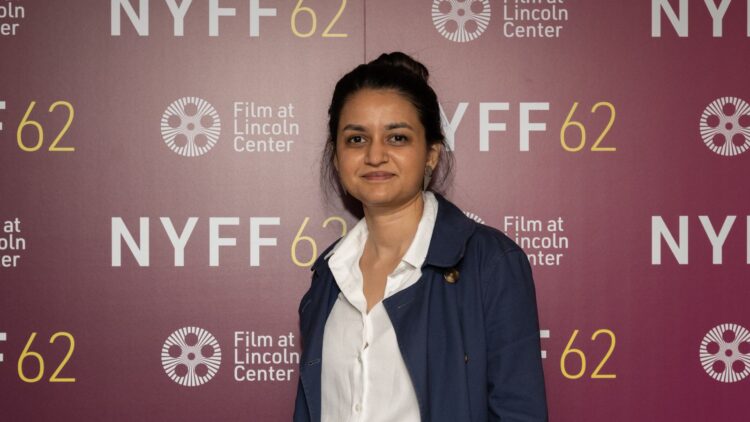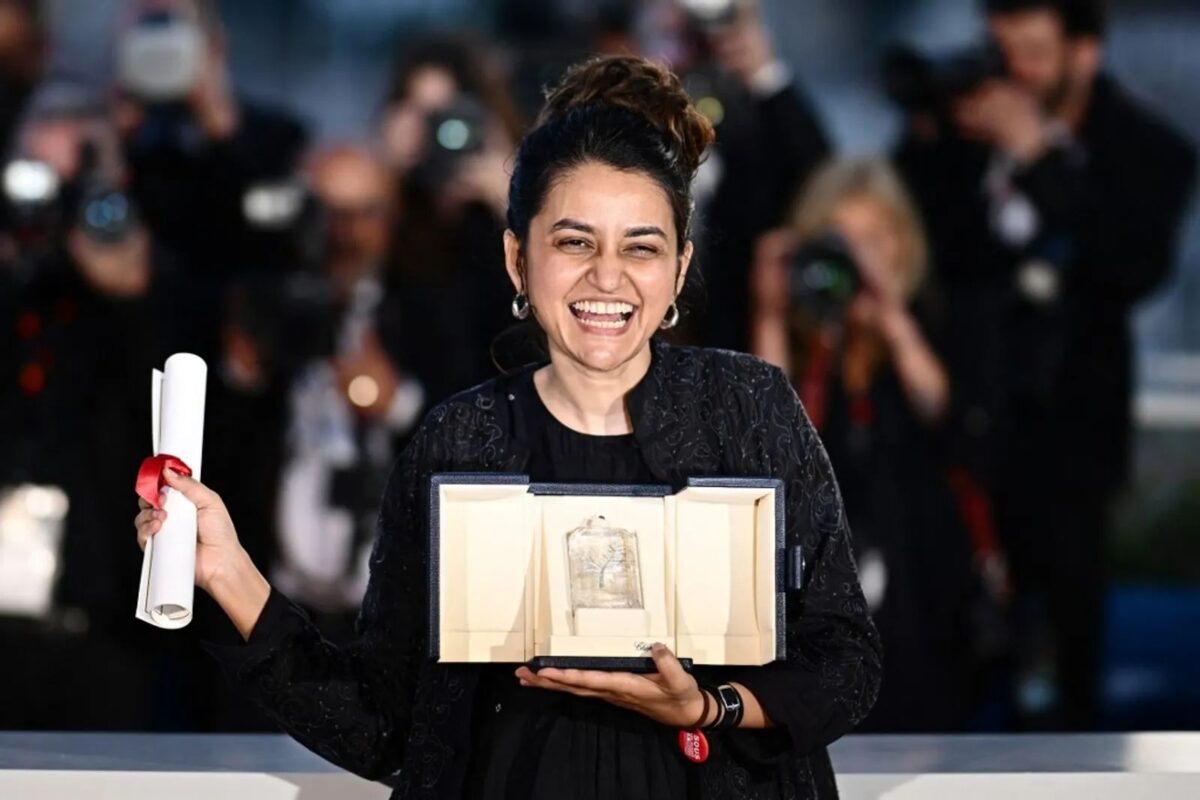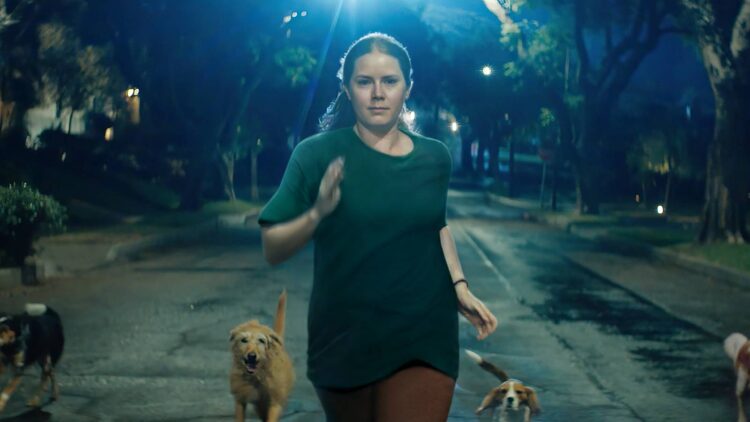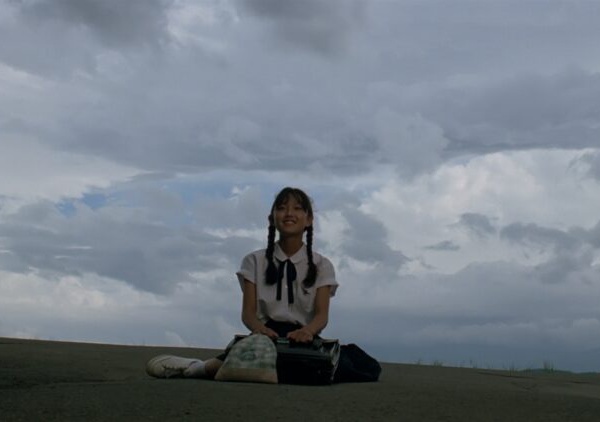

In a mere two features, writer-director Payal Kapadia has emerged as one of India’s, if not the world’s, most significant filmmakers. Partly because of her remarkably assured voice. And partly because those two features couldn’t be less alike, Kapadia proving her artistry not through mastery of a particular style but of affecting cinematic language in any form. Where A Night of Knowing Nothing broke ground in revolutionary experimental documentary filmmaking, her newest, All We Imagine as Light, gives the long-held (and easily staled) tradition of fictional realism a cardiogenic shock back to life.
Five months after her Grand Prix win for the film at Cannes and only days after she was named to TIME’s Next 100 list (the upcoming most influential people in the world), we sat down with Kapadia at the New York Film Festival to discuss her new film in its own right and in the scope of her burgeoning career.
The Film Stage: Let’s start with A Night of Knowing Nothing. I want to talk about that transition, because your first is a trance of experimental non-fiction and All We Imagine as Light is a drama with some gentle magical realism. But both feel revolutionary in spirit, even if one seems more so on the surface. I’m wondering if that was intentional, and how you made that genre jump and why.
Payal Kapadia: I was making both of the films at the same time. I started writing All We Imagine as Light a long time ago. And A Night of Knowing Nothing was kind of a non-film that became a film. So they were like two parallel streams coming together, somehow, that intersected at points. I think one thing streamed into the other. I think with A Night of Knowing Nothing I was very angry as a filmmaker and a person who was involved in these things. And the film also has that feeling in it because it just couldn’t be helped––the film ends with a slightly sad note, for me at least. I wanted to have in this film some hope in the feeling of community. So even though there is dancing in A Night of Knowing Nothing at the end, for me that dancing is full of bad times. Whereas in All We Imagine as Light, the dancing is joyous, a letting-go kind of feeling. I wanted it to be less sad.
So what’s the timeline like? Did you finish A Night of Knowing Nothing long before you finished All We Imagine as Light?
Yeah, I finished A Night of Knowing Nothing in 2021. And after I was done showing the film and going around for a few months with it, I started pre-production on All We Imagine as Light in 2022. And then that took two years. We shot the film starting in the summer of 2023. But the shooting was, like, over six months because we had to wait for the season to change. And shooting itself took some time. Then post-production took another 4-5 months. So it was kind of quite quickly after A Night of Knowing Nothing that we got into the pre-production of All We Imagine as Light.
Did the story of All We Imagine as Light change based on what you had originally written because of the tone of A Night of Knowing Nothing?
Yeah, absolutely. The editing of A Night of Knowing Nothing and dealing with all the material gave me a feeling of enjoying working in a way that is more artisan, you know? Like a craft. Like something that has a more material feeling than film can sometimes feel like, because there are so many people involved and it becomes a big thing. But the kind of crafting on A Night of Knowing Nothing––which was just me and my editor, just working in our bedrooms editing this movie––I wanted to see how I could continue that feeling at least a little bit. Because the crews get big. You have 100 people on your set. But how can some of that small, threading needle feeling continue. And I tried with some scenes and some sequences to shoot in that way that I had before. And shoot a lot and then sit with it and see. We had no purpose to shoot some scenes and we still shot them to see what we would do with them. That I enjoy very much.
Do you have a strong preference in terms of what kind of film you would rather make? Or do you love doing it all?
I like mixing fiction and nonfiction. I think that there is something in this juxtaposition that brings out another feeling of truth. And in the world that we live in, which is full of narratives being created around us all the time––surreality, questions of the real or so-called real world that we are fed every day in the news––I think that it’s happening around us all the time anyways. It’s just that in cinema, creators and journalists like to point out, “This is nonfiction. This is fiction.” But actually everything is all a big soup.
Was it difficult capturing the nonfiction elements of All We Imagine as Light with a bigger crew and stricter schedule?
Yeah, we had a stricter schedule, but I have a really great DoP [Ranabir Das] who, like me, is not obsessed with an interest in image quality and is trying to arrive more at a feeling rather than, you know, this technical obsession. So, we shot sometimes with a small DSLR camera. Some people will be like, “Oh my God, it will never match!” But… it was fine. I always tell people: it’s not the camera. It’s the person behind it.
Would you ever direct someone else’s screenplay? Or do you have a bunch of screenplays in the bank that you’d rather get made?
I mean, right now, I don’t know. Because in India we don’t really have this system that is there in the US of, like, a screenplay being given. It’s a little bit there, but it’s not the norm I think. So for the moment I’d like to still be a writer-director. But I’m very interested in adaptation, so it’s something that is piquing my interest, and I think I would go in that direction too. But I love writing, so it would be like, “Why? Why can’t I write?” [Laughs]
Do you plan on continuing to make films in India exclusively? Are you interested in Hollywood or film industries intersecting with that world at all?
I haven’t really given it much thought, because it’s a whole different world for me. India and Mumbai is a place I understand and a place I’m familiar with. And as of now, at least, the stories that come to mind for me belong to Mumbai and the western coast of India. So I wouldn’t say that it would be a complete no-no. But, as of now, there are so many things in my mind that I still need to do with the place that I’m from, that maybe it will take a few years. [Laughs]
I love that you tell stories from such a personal and intimate place. I think that kind of approach often leads to the best films.
I think so! In the world we live in now we can share films so much more easily. It’s so easy that the local is very international. And that’s nice. We live in a privileged time.
To All We Imagine as Light now, where the did characters of Prabha and Anu come from? Are those people you knew in your life? Are they you?
Yeah, like an accumulation of people, a little bit of myself. Some people that I met who are in these situations. I always say this, but it took me so much time to write this film because I was doing two things. I went from being closer to the age of Anu to being at the age of Prabha by the end of making it. I have so much empathy for both of these characters and I feel some way that I have been both of them at some point or another, just in my worldview and perception.
Is them going to the cinema reflective of your own experience? Or is that just a way for you to explore your characters through art?
My biggest joy in cinema-going is to sit in the darkness with random strangers and cry. It’s like the nicest release for me. I love it. That’s why I watch films. So I wanted to put it in a film.
Going back to the contrast between the righteous anger of your first film and the tenderness of this one, and thinking about that through character: Prabha and Anu are imbued with a rebelliousness, a refusal to conform to things like burqas, or living with men, or the caste system. They stand proud as societal disruptors. But there’s such a gentleness to them and their connection. Why did you decide to paint them that way, with that tenderness?
I think I’m a person who’s a little sensitive. So, for me, that maybe goes into the characters also. My previous film was a very angry film. It was a film with a very clear sort of political position that I was taking. In this film I wanted to be a bit more calm internally, just because I have been so angry for so long. It just felt like I needed to calm a little bit, to explore a new way of thinking about the same issues.
They feel like two sides of the same coin in a lot of ways.
And no one watched that film, so now I’m trying a different way. [Laughs]
There’s a sense to the film that family is better found on one’s own. Through friendship and the cobbling together of communities. I wonder: do you feel that way about most people? Or is it conditional on one’s family? I come from Texas, and there’s a lot of tradition there around family and sticking with the family you were born into no matter what. I’ve lost friends and partners over wanting to live alongside a larger, discovered family and not being solely glued to biological families. So it’s something that feels universal in some ways, but I’m curious what you think.
It’s nice to hear you talk about that. Yeah, I think in India it’s the same. The family is a very important and strong unit. And I don’t have any problem with family, because for a lot of people the family is the one that looks out for you also, and that’s true, of course. But, for me, I was interested in the roles of the family members being so well-defined, in India especially. Like, how a mother should be, how a father will be. It’s all very clear in our media and in our literature and in our daily lives. It’s fixed. A wife must be like this. These are all relationships that are there.
But friendship is a big one, because there’s no real definition of friendship. It’s how you and I want to define our friendship. We are close friends, far friends, intimate friends, all these kinds of things. And that, for me, has a lot of possibility because it gives a space for people to integrate their relationship. And it goes beyond identity, and it goes beyond any preconceived notions. And it allows for greeting a lot of differences, which we love making in contemporary society.
The concept of impermanence is mentioned right at the beginning and is a theme throughout the film. It seems like a hard concept to define, in a way that the film speaks to through its contemplative and nurturing approach to exploring the concept. How do you define impermanence?
For me, it’s two things. Impermanence is a source of extreme anxiety for human beings. For all of us––for me also––the thought of impermanence causes melancholy. But impermanence also implies change, which is the norm. I mean, change has to happen. So it’s both things in impermanence that we have to deal with, which causes anxiety but also, perhaps, a movement forward.

Payal Kapadia at the 2024 Cannes Film Festival
That gets directly to my follow-up question. While watching the film, it feels like impermanence is this thing that plagues the leads but also something that could potentially set them free.
Absolutely, yeah. You have to just become comfortable with impermanence. Otherwise you’ll always be sad.
Do you think impermanence is something all humans experience by nature or is it brought on or heightened by socio-economic situations?
Well, the general feeling of impermanence is there because we’re going to die. [Laughs] So that is a larger impermanence. But socio-economic systems definitely make people more comfortable or uncomfortable with impermanence. People who are always on the move or always precariously in situations where they know that their house is going to collapse when the next monsoon comes, or they know they have to be protected from the next flood, or that somebody’s going to come and ask them for papers for where they live but they definitely don’t have the papers––they have to negotiate impermanence in a very different way from all of us who have a sense of stability, a bank account, and a place to sleep every night. And that is a negotiation with impermanence that I think most of the population does on a daily basis. I see that in New York also.
What drew you to the music of Emahoy Tsegué-Maryam Guèbrou?
I was not familiar with her music when I was writing the script or making this film or anything. I met my editor, Clément Pinteaux, who knew I was obsessed with simple piano music. I enjoy this a lot. So he made me listen to it, and I was completely mesmerized. It gave me a feeling of joy and delight and reverie that you feel when you’re just falling in love. Like, the most average food starts tasting better because you are with somebody. And you do feel that with some music. You listen to it and go to work every day and it just makes you feel better. So I think this is what the music made me feel and I wanted to use it more like a motif in the whole film rather than when a love story was appearing.
It really does evoke all of that. It makes me tear up just thinking about hearing it. Trickling along in my head.
Have you heard the rest of her albums? Like, whatever she’s put out? It’s really, really good.
Yeah, it’s great. I went through a phase of exploring her discography earlier this summer after I saw your film.
No. That’s so nice!
Have you seen Time? Or has anyone mentioned it to you?
No.
That’s where I heard her music for the first time. It’s an incredible documentary from 2020. And the music is unlocking your soul the whole time.
Oh, okay! I will pick up Time. Who’s the director?
Garrett Bradley.
I always take a good recommendation.
Getting back to All We Imagine as Light, why did you decide to use magical realism?
I really like magical realism. I don’t know, like, at least in my culture––and I think it’s true in many different non-European and non-western cultures––folk stories and fantasies and ghosts and these things are very much part of our daily life. And my grandmother––the opening woman who speaks about her husband’s ghost––that is her story. She lived to the age of 98, and towards the end of her life she was having these visions of her husband coming to visit her and he was formative in our perception. But none of our conversations were about him being a ghost. And what I find fascinating is that she was married to this guy––my grandfather––and he died when she was 50. But she could never really marry or be with anybody else, so she was single for most of her life. And he still came in her visions as a half-ghost. And she didn’t even like him that much.
I was thinking a lot about these kinds of ways that we very easily talk in my culture. Like, there was a friend of mine whose aunt was wading through loss, and a stray dog walked into her house once and she said, “Ay, this is my husband. He’s found his home. He passed away a few years ago. Look, this dog is so friendly to me. He must be my husband.” These kinds of things are very much a way for us to hope. And magic realism provides a window of opportunity to speak about things that realism doesn’t. So I like very much to mix these things.
How do you feel about your recent naming to the TIME 100 Next most influential people list?
I am genuinely happy to be included in TIME‘s Next 100 for my work and to be honored amongst so many incredible and inspiring people. Making independent cinema in India is extremely difficult for filmmakers who work outside the studio system. Bringing these films to audiences across the world, even more so. In India we make a remarkable range of cinema but these diverse narratives don’t always get the international recognition they deserve. I hope that the recognition I have received this year draws further attention to the tremendous cinema of my country.
What are you working on next?
I’m making a film, another romantic movie about Bombay. I want to make three films, like a trilogy on the city and nomads.
Do you have the films all written?
No, they’re at various stages. They’re in a treatment stage right now. Usually, when you do your post-production you start writing again for the next film. But this post-production just went [makes zipping noise] really quickly; I had no time to think about it. I’m not complaining, but usually it’s a slow dissolve and it’s nice, from one project to the other.
Do you have any idea when your next film might come?
Minimum three years. It takes time! [Laughs]
All We Imagine as Light opens on November 15.
The post Payal Kapadia on All We Imagine as Light, Impermanence, Magical Realism, and Trilogy Plans first appeared on The Film Stage.



